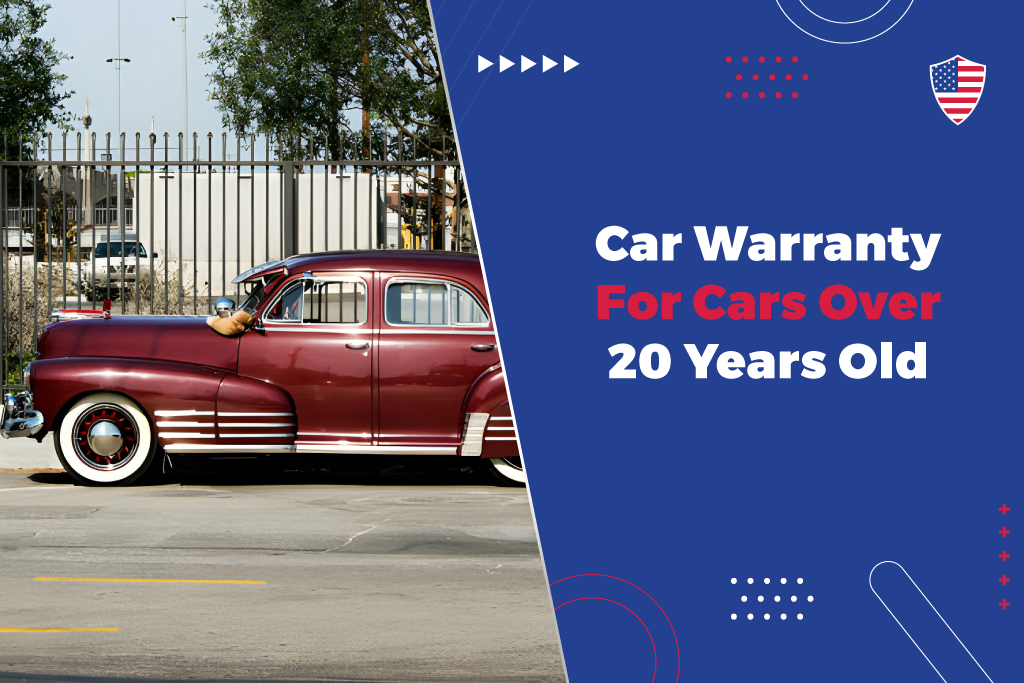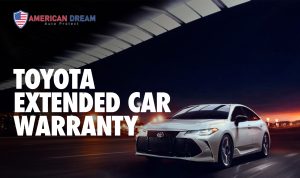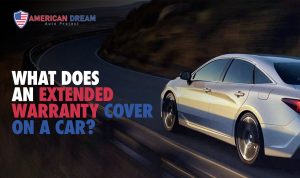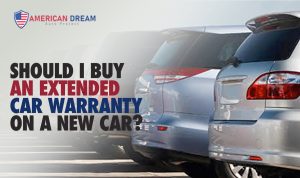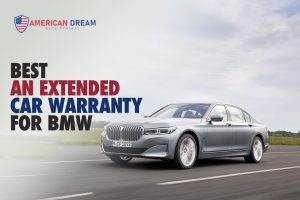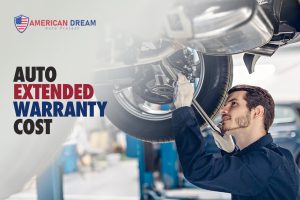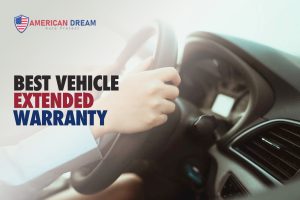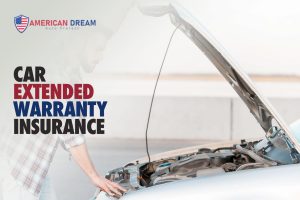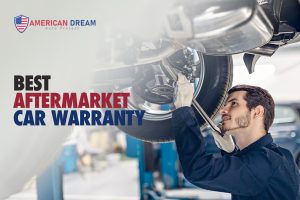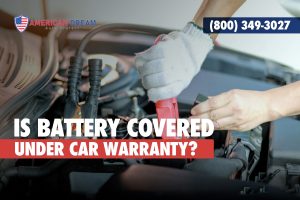Do you find yourself behind the wheel of a seasoned vehicle? Let’s rephrase that a tad. Is your driving experience centered around a vintage or classic automobile? Chances are, you’ve noticed a decline in its performance, perhaps anticipating the day when something inevitably goes awry. What if I told you there’s a solution? Contrary to popular belief, extended warranties aren’t exclusively reserved for brand-new cars. They extend their protective embrace to older, well-loved vehicles, matching the reliability of any manufacturer’s warranty.
In the pursuit of the ideal safeguard for your cherished classic, let’s delve into the realm of extended warranties tailored for aging automobiles. Join us as we unravel what these coverage plans entail for your enduring companion and discover where you can secure this invaluable protection.
What are Extended Warranties for Older Cars?
Extended warranties for older cars serve as a crucial safety net, providing an additional layer of protection for vehicles that have weathered the passage of time. Unlike the standard warranties that come with new cars, which typically cover the first few years or a certain mileage limit, extended warranties for older cars offer a lifeline to aging vehicles facing the inevitable wear and tear. These warranties come into play once the original factory warranty expires, ensuring that the car remains shielded from unexpected repair costs.
One of the key features of extended warranties for older cars is their flexibility. They can be tailored to address the specific needs and vulnerabilities of older vehicles. This flexibility is especially beneficial for classic or vintage cars, which may have unique components and require specialized attention. By opting for an extended warranty, car owners can enjoy peace of mind knowing that they have a comprehensive plan in place, covering everything from major mechanical failures to electrical system malfunctions.
Furthermore, extended warranties for older cars often provide coverage beyond the basic powertrain components. While powertrain warranties are common, comprehensive extended warranties can encompass a broader range of systems, including electronics, air conditioning, and suspension. This comprehensive coverage is invaluable for older cars that may experience issues in various areas due to their age.
Where to Find an Extended Warranty for Older Cars:
Finding the right extended warranty for your aging vehicle involves navigating a marketplace that caters to the diverse needs of car owners. Fortunately, several reputable sources offer extended warranties for older cars, ensuring you can choose a plan that aligns with your specific requirements.
Dealerships:
Dealerships often provide extended warranty options for both new and used vehicles, including older cars. These warranties may be backed by the vehicle manufacturer or a third-party provider. While convenient, it’s essential to carefully review the terms and coverage to ensure it meets your expectations.
Third-Party Warranty Companies:
Many independent warranty companies specialize in offering extended warranty plans. These companies are not affiliated with specific manufacturers, providing a broader range of coverage options. Before committing to a third-party warranty, conduct thorough research to assess the company’s reputation, customer reviews, and the comprehensiveness of its coverage.
Online Warranty Providers:
The digital landscape has made it easier than ever to explore and compare extended warranty options for older cars. Numerous online platforms connect car owners with reputable warranty providers. These platforms often facilitate the comparison of different plans, making it simpler to find one that fits your budget and coverage preferences.
Automotive Service Associations:
Certain automotive service associations offer extended warranty programs as part of their member benefits. Joining such associations can provide access to exclusive warranty plans, and the association’s endorsement can be a mark of reliability.
Insurance Companies:
Some insurance companies offer extended warranty options for vehicles, including older cars. This can be a convenient option, especially if you already have an insurance policy with the company. Bundling services may also result in potential cost savings.
Vehicle Manufacturers:
While less common for older cars, some vehicle manufacturers offer extended warranties beyond the standard factory warranty. These warranties may cover specific components or systems, providing an added layer of protection.
Automobile Repair Shops:
Certain reputable auto repair shops collaborate with warranty providers to offer extended warranty options for their customers. This is particularly advantageous as it combines the convenience of repair services with the assurance of extended coverage.
Why Do Some Companies Not Offer an Extended Warranty for Older Cars?
The absence of extended warranty options for older cars from certain companies can be attributed to several factors, reflecting the complex considerations and challenges involved in providing coverage for aging vehicles. Understanding these reasons sheds light on the dynamics of the extended warranty market and the perceived risks associated with older cars.
Increased Risk of Breakdowns:
Older cars, having endured years of wear and tear, inherently pose a higher risk of mechanical failures. Companies offering extended warranties may be hesitant to cover vehicles beyond a certain age due to the anticipated increase in the likelihood of breakdowns. This risk assessment influences their decision not to extend coverage to cars with extensive mileage and age.
Lack of Parts Availability:
As cars age, the availability of replacement parts becomes a significant concern. Some companies may refrain from providing extended warranties for older cars because sourcing parts for specific models that are no longer in production can be challenging. This scarcity of components complicates the repair process, affecting the feasibility of offering comprehensive coverage.
Cost Considerations:
Older cars often require more frequent and costly repairs. Extended warranties necessitate a delicate balance between providing robust coverage and managing the financial implications for the warranty provider. Some companies may choose not to offer extended warranties for older cars to mitigate the potential financial strain associated with the higher probability of claims.
Limited Data on Reliability:
Comprehensive data on the long-term reliability of older car models may be limited. Companies rely on statistical analyses and historical data to assess the risk associated with warranty coverage. The absence of sufficient data for certain older models may make companies hesitant to extend warranties, as predicting potential issues becomes more challenging.
Exclusion of Pre-Existing Conditions:
Older cars may have pre-existing conditions or issues that were not apparent during the initial coverage period. Companies offering extended warranties may be reluctant to cover these pre-existing conditions, leading them to exclude older cars from their warranty programs to avoid disputes and potential financial losses.
Evolving Technology and Features:
The rapid advancement of automotive technology means that older cars may lack the sophisticated features found in newer models. Companies may be more inclined to offer warranties for vehicles equipped with modern systems, as the complexity of repairs and the availability of specialized technicians could be greater for older, less technologically advanced cars.
How to Extend the Lifespan of a Car Over 20 Years Old?
Extending the lifespan of a car that has reached the 20-year mark involves a combination of proactive maintenance, strategic upgrades, and mindful driving practices. Here’s a detailed exploration of strategies to ensure your vehicle remains reliable and functional for years to come:
- Consistent and scheduled maintenance is the cornerstone of preserving an older car. Adhering to the manufacturer’s recommended maintenance schedule for tasks such as oil changes, brake inspections, and fluid replacements is crucial. Regular maintenance helps prevent minor issues from escalating into major problems and ensures that all components operate optimally.
- Conducting regular and thorough inspections of the vehicle’s systems is essential. Check for signs of wear and tear on belts, hoses, and other critical components. Addressing issues promptly can prevent unexpected breakdowns and extend the overall lifespan of the car.
- Consider upgrading key components to enhance the performance and longevity of your older car. Upgrades such as installing a high-quality radiator, upgrading the braking system, or opting for more durable suspension components can contribute significantly to the vehicle’s overall reliability.
- Rust is a common concern for older vehicles, especially in regions with harsh weather conditions. Regularly inspect the car’s undercarriage and address any signs of rust promptly. Applying rust inhibitors and protective coatings can help prevent corrosion and extend the life of the chassis and body.
- Adopting careful and mindful driving habits contributes to the longevity of an older car. Avoid aggressive driving, sudden acceleration, and abrupt braking. Smooth driving reduces stress on the engine, transmission, and other critical components, preserving their integrity over time.
- Parking your car in a sheltered environment, such as a garage, protects it from the elements and reduces exposure to harsh weather conditions. Extreme temperatures, whether hot or cold, can accelerate wear and tear on various components. Sheltering your car can help mitigate these effects.
- Opt for high-quality fluids and lubricants that meet or exceed the manufacturer’s specifications. This includes engine oil, transmission fluid, brake fluid, and coolant. Premium fluids provide better protection for vital components, reducing friction and heat.
- Addressing issues promptly is crucial to preventing further damage. If you notice unusual sounds, vibrations, or warning lights, seek professional assistance immediately. Timely repairs prevent problems from worsening and contribute to the overall health of the vehicle.
FAQs:
Can I get an extended warranty for my car if it’s already beyond 20 years old?
While options may be limited, some providers offer extended warranties for cars over 20 years old. It’s advisable to research specialized warranty companies and inquire about their coverage for older vehicles.
What if my car has a modification or aftermarket parts? Can it still qualify for an extended warranty?
It depends on the warranty provider. Some may cover modified or aftermarket components, while others may have restrictions. It’s essential to communicate any modifications to the warranty provider and review their policy regarding such alterations.
Are routine maintenance services covered under extended warranties for older cars?
Typically, routine maintenance services, like oil changes and tire rotations, are not covered by extended warranties. These warranties focus on unexpected repairs rather than regular upkeep. Always check the terms of the warranty for specific details.
How do I know if my older car is a good candidate for an extended warranty?
Consider factors such as the car’s current condition, maintenance history, and the availability of replacement parts. Consult with warranty providers, and they can often assess your vehicle’s eligibility based on its age, mileage, and overall condition.
Can I transfer the extended warranty if I sell my older car?
Many extended warranties are transferable, but it depends on the provider. Check the terms and conditions of the warranty to see if it can be transferred to a new owner. This feature can add value to your vehicle when selling.

